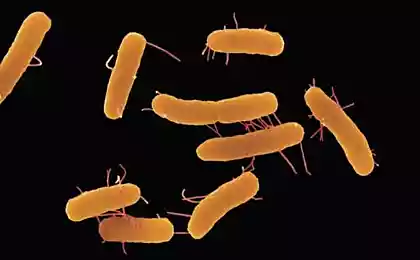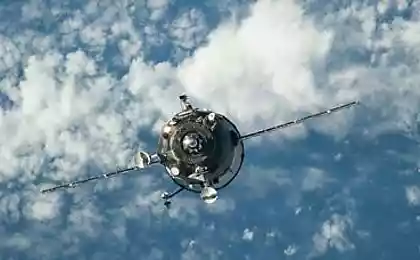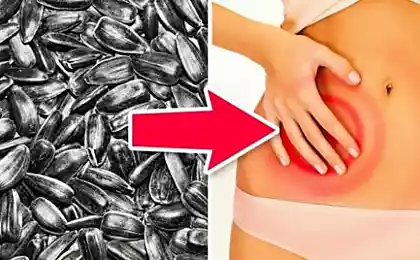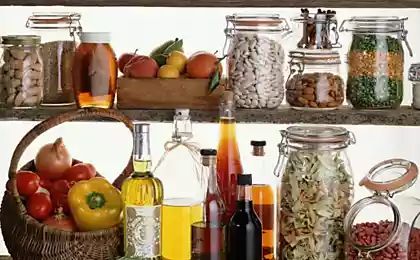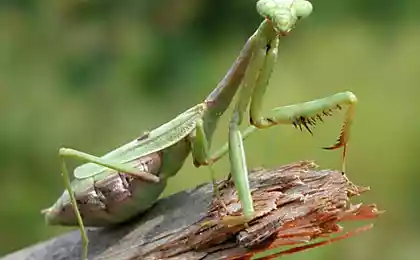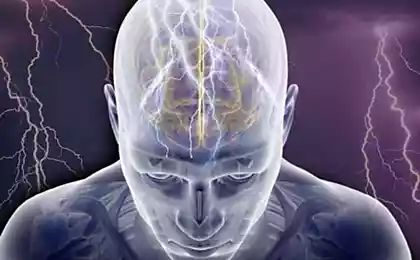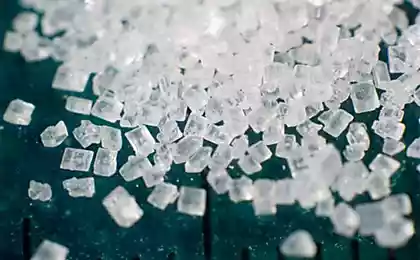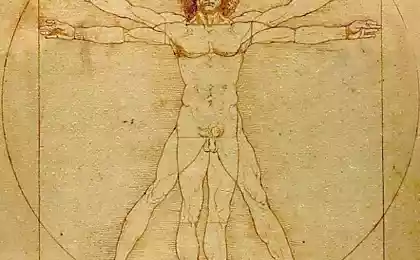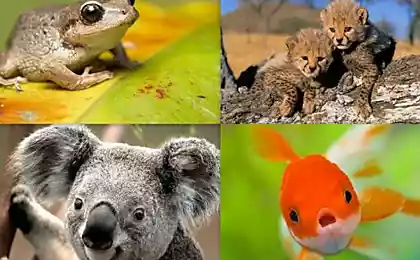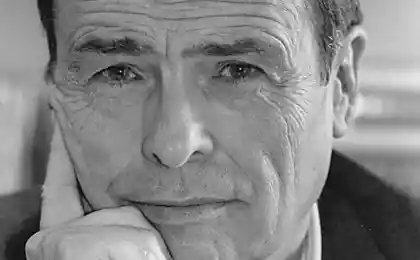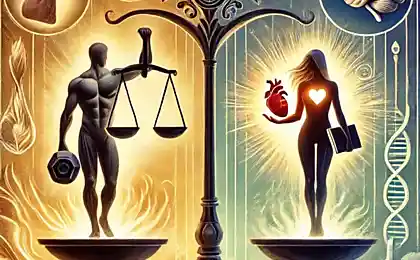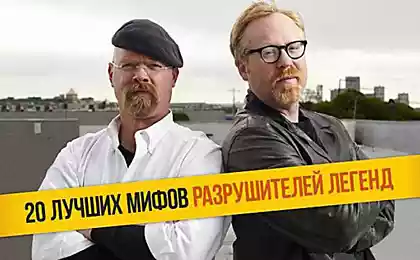1418
The myth of technological progress - is confusing
"Only a poor farmer buys the products that he can make himself" - this old Roman proverb, which I found in the textbook of Finnish Agriculture 50s.
In the late eighties, I became interested in self-sufficiency as a form of life. This was because after school I could not find a place in mainstream society. My desire to participate in the development of my social environment encountered conscience tormenting questions: Can I participate in the process, which I have the feeling that it is developing in the wrong direction? It was in Germany, where she moved my family with my brother in 1972..
Self-sufficiency has become synonymous for me free conscience. Production and cultivation of all that I need for life, allowed me to do exactly what I thought was right and necessary. In 1990 I moved back to Finland. After the first few years of practice I have even more convinced that the myth of the superiority of our technological progress greatly distorts reality. Agriculture without tractor production of firewood from the forest without technology and work with primitive tools showed me the real ratio between the cost of the work and the outcome. Use of resources varies greatly when it comes to produce or procure everything yourself.
I started to theoretically analyze my observation that was the beginning of a series of reports in 1991, which I kept for several winters in Finland. This article is the union of these reports.
Later I wanted to concentrate fully on the practice of self-sufficiency and to test my theoretical conclusions. I was amazed how far behind I could leave the dependence on money. For 13 years, my annual budget ranged from 30 to 50 euros. My statements about the difference in efficiency between industrial production and manual labor needed only minor amendments. Despite the fact that I was from year to year, he was producing food for themselves, ruble wood strands of wool yarn and weave, I remain still enough time for hobbies and life with people. First, my way was through almost uncompromising loner, now we live this life as a family.
In this paper, consisting of seven parts, I will discuss the fundamentals of our society and the question of whether they are suitable for our environment. I will start with a comparison of energy costs in mechanized production and manual labor. In this next chapter is based on the fatal relationship between energy and cash flows. This is followed by consideration of what the relationship between the organization of society has and energy. Thus I conclude that should cause us to think, we are not too fixed on the organization of a society based on the state? It represents only one possible way people can get together in a sustainable community. Then I turn to the question of how we could contribute to changes in world events. In this regard, I must confess, I pay more attention to what prevents the necessary changes than on promising projects, working hard to make this world more stable. We ourselves have to ask why we think that only the ruling system, despite its harm to humans and nature, brings us the greatest personal freedom.
My treatise concludes example of what can make a person, has his work was not in vain.
Lars-Juergen Nordlund 20.12.2008
Treatise Lars-Jurgen Nordlund "the land on which we stand" consists of nine parts.
I) Human work, equipment and energy
II) The relationship between energy and money
III) The social forms and their energy balance
IV) Cultural values are inherited and cargo
V) Paralyzed democracy towards dictatorship
VI) The Social Contract
VII) Uncontrolled society
VIII) decentralized or involve cooperation
IX) Experience in self-sufficiency
Here we publish only the head of his personal experience of self-sufficiency. The entire treatise can be found in the attached document.
EXPERIENCE sustainment
When I think of the global situation of the capabilities of people, I have the impression that the most effective way to change the world lies in the hands of the people themselves, and not in the corridors of institutions. This path is not omnipotent, but at the moment, the best prescription is not expected.
In the years from 1992 to 2004 in North Karelia in Finnland I practiced the most extreme form of self-sufficiency. The way people deal with self-sustainment, approximately the same, regardless of whether they live in Finland or in the Amazon jungle.
One person must be strikingly little arable land to provide sustenance for themselves for a year. Enough about 5 ap (500 square meters), if it besides mushrooms and berries. In a year I eat about 200 kg of mushrooms, which I mostly land. I collect berries about the same, I can in their banks at a special technique that does not require sterilization, no added sugar or other substances. Regular turning cans enough to berries stored for several years and were fresh and sweet.
In my work experience, which I do not use any machines, I'm trying to fill in the whole chain of production. To manufacture the clothes, I'm trying to make a spinning wheel and possible tools for its construction make himself.
Everything starts with horticultural outdoor toilet, where I thoroughly composted all household waste. Turning land I realize perekopochnymi pitchforks. I collect firewood in the forest on a cart, Peel and prick them with an ax. Manufacture of clothing I start with shearing or with the cultivation of flax. I twist the thread itself and weave the fabric of her. Linen thread, I mainly used for production networks and administer (traps for catching fish). Basket weave willow.
Routine self at this level takes an average of half a day, if I had the time of work is distributed evenly throughout the year. In animal food is not necessary. During this time, I again became a vegetarian. If there is a lake, the fishing on the energy consumption more advantageous, rather than pets. Hunt takes the energy balance between the average spot fishing and animal welfare. If we keep the animals that we use them as a means to collect energy from nature that we use in the form of meat (see. Chapter One). Pets, except for the traditional content at Lapp reindeer - here in the north often does not make sense, because for the long winter we have to stock up on plenty of feed, production of which in a short summer will require a lot of work. With equal labor costs - in the garden I can get more energy, cultivating vegetables than meat - in the case of the animals. On the other hand - the fur and skin are excellent materials for making clothes, whose substitution by other materials would mean a lot of extra work. What worsens the balance of the animals in comparison with the natural economy, is the fact that animals are strongly forced to work rhythm regularity. This can cause a problem there, where results are highly dependent on the weather. Success in the subsistence economy definitely depends on how carefully we are able to dispense with their working time.
In this essay, I did not mention the use of horses in the main proceedings. The horse is usually considered as a matter of course in the traditional small-scale agriculture, which is largely similar to the self. However, caring for a horse is not a trifle, care easily overshadows the benefits that could be obtained from a horse. In a life with nature, it is important to minimize the risk. Animals always bring us surprises, to which we must prepare. To be able to work with a horse, you must free the land from the rocks and roots. Horses need a harness and accessories that are not needed in the garden and making that usually fails in the home. I have not found a reason why I would need a horse, but a lot of reasons not to have it.
I believe that the horse was in Finland is integrated in agriculture, because the farmer was not free. Especially because of the taxes he had to give non-perishable products - resin and grain. For the hard work of cooking the resin used in the winter horse power, and only just bought it - it made sense to use it on the farm and in the summer. Peasant life was hard, because he could not in his working life the best use of the conditions of their region. He was usually follow other conditions, and not the nature and its rhythm and the power stroke of his body. His writings eats human society, and therefore the peasant always kept purposefully depending.
And finally ...
The gap between the unknown course which follows our society today, and well-known ways of old agricultural, hunting and gatherer cultures is evident. When it's time to recognize that we do know about the natural economy, practiced for thousands of years, that it is in harmony with nature and not destroy the fundamental basis of our existence?
All we're trying to save with our technology - this is again a new experiment with an unknown outcome. We do not need more research, because We already know what style of life, our planet can sustain.
Spiritual lethargy and our ability to convince ourselves in whatever we believe separate us from understanding the situation. Boundless thirst for human experimentation creates the strangest ideas about how we solve the global problem of global energy supply. Some scientists are working on an industrial separation of carbon dioxide from the atmosphere to pump it into the ground. This will happen to the cost of energy and resources. Quiet suspicion in the wrong course of our ship is constantly forcing some people to increase the speed even more. The fact that people lived without motors and despite it created a highly developed culture, they are not interested.
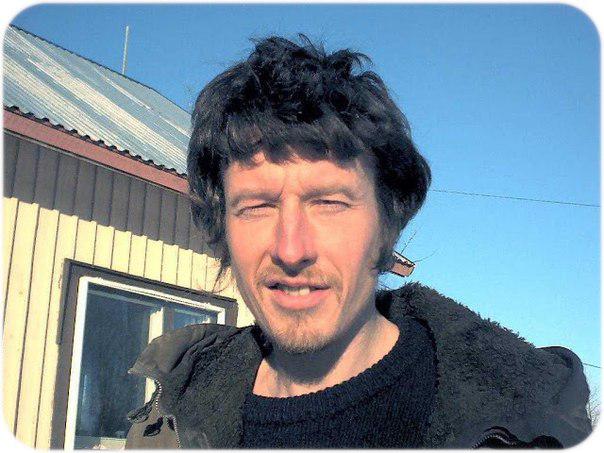
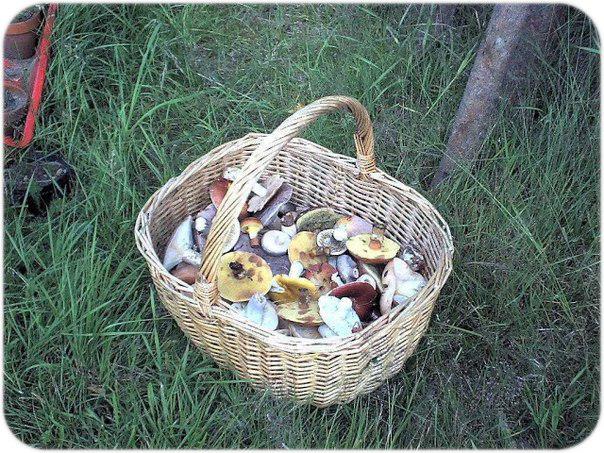
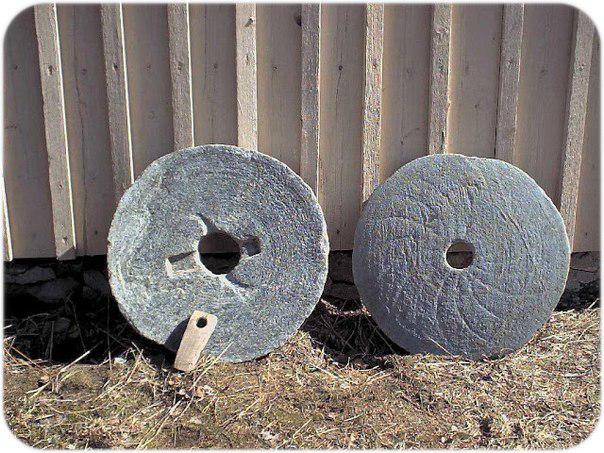
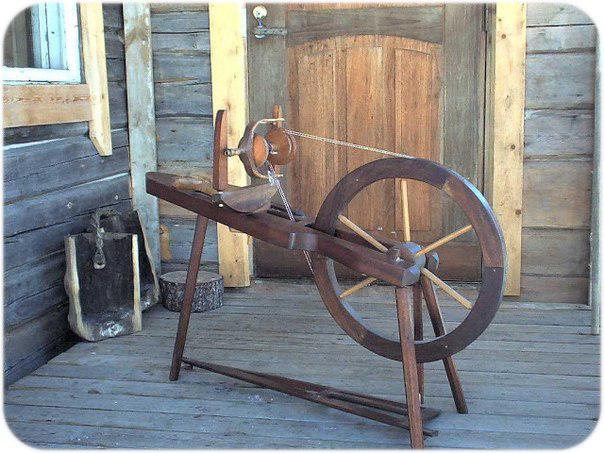
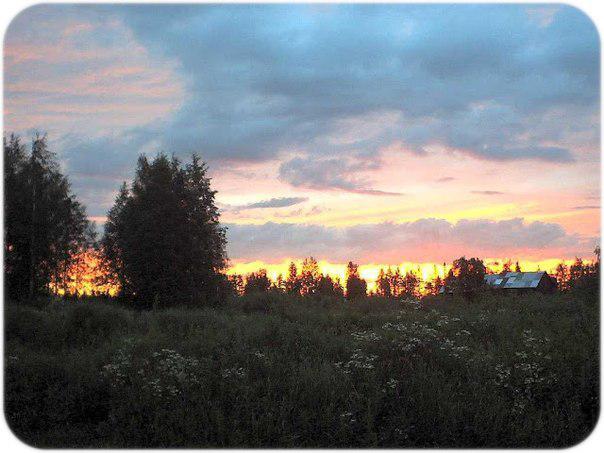
In the late eighties, I became interested in self-sufficiency as a form of life. This was because after school I could not find a place in mainstream society. My desire to participate in the development of my social environment encountered conscience tormenting questions: Can I participate in the process, which I have the feeling that it is developing in the wrong direction? It was in Germany, where she moved my family with my brother in 1972..
Self-sufficiency has become synonymous for me free conscience. Production and cultivation of all that I need for life, allowed me to do exactly what I thought was right and necessary. In 1990 I moved back to Finland. After the first few years of practice I have even more convinced that the myth of the superiority of our technological progress greatly distorts reality. Agriculture without tractor production of firewood from the forest without technology and work with primitive tools showed me the real ratio between the cost of the work and the outcome. Use of resources varies greatly when it comes to produce or procure everything yourself.
I started to theoretically analyze my observation that was the beginning of a series of reports in 1991, which I kept for several winters in Finland. This article is the union of these reports.
Later I wanted to concentrate fully on the practice of self-sufficiency and to test my theoretical conclusions. I was amazed how far behind I could leave the dependence on money. For 13 years, my annual budget ranged from 30 to 50 euros. My statements about the difference in efficiency between industrial production and manual labor needed only minor amendments. Despite the fact that I was from year to year, he was producing food for themselves, ruble wood strands of wool yarn and weave, I remain still enough time for hobbies and life with people. First, my way was through almost uncompromising loner, now we live this life as a family.
In this paper, consisting of seven parts, I will discuss the fundamentals of our society and the question of whether they are suitable for our environment. I will start with a comparison of energy costs in mechanized production and manual labor. In this next chapter is based on the fatal relationship between energy and cash flows. This is followed by consideration of what the relationship between the organization of society has and energy. Thus I conclude that should cause us to think, we are not too fixed on the organization of a society based on the state? It represents only one possible way people can get together in a sustainable community. Then I turn to the question of how we could contribute to changes in world events. In this regard, I must confess, I pay more attention to what prevents the necessary changes than on promising projects, working hard to make this world more stable. We ourselves have to ask why we think that only the ruling system, despite its harm to humans and nature, brings us the greatest personal freedom.
My treatise concludes example of what can make a person, has his work was not in vain.
Lars-Juergen Nordlund 20.12.2008
Treatise Lars-Jurgen Nordlund "the land on which we stand" consists of nine parts.
I) Human work, equipment and energy
II) The relationship between energy and money
III) The social forms and their energy balance
IV) Cultural values are inherited and cargo
V) Paralyzed democracy towards dictatorship
VI) The Social Contract
VII) Uncontrolled society
VIII) decentralized or involve cooperation
IX) Experience in self-sufficiency
Here we publish only the head of his personal experience of self-sufficiency. The entire treatise can be found in the attached document.
EXPERIENCE sustainment
When I think of the global situation of the capabilities of people, I have the impression that the most effective way to change the world lies in the hands of the people themselves, and not in the corridors of institutions. This path is not omnipotent, but at the moment, the best prescription is not expected.
In the years from 1992 to 2004 in North Karelia in Finnland I practiced the most extreme form of self-sufficiency. The way people deal with self-sustainment, approximately the same, regardless of whether they live in Finland or in the Amazon jungle.
One person must be strikingly little arable land to provide sustenance for themselves for a year. Enough about 5 ap (500 square meters), if it besides mushrooms and berries. In a year I eat about 200 kg of mushrooms, which I mostly land. I collect berries about the same, I can in their banks at a special technique that does not require sterilization, no added sugar or other substances. Regular turning cans enough to berries stored for several years and were fresh and sweet.
In my work experience, which I do not use any machines, I'm trying to fill in the whole chain of production. To manufacture the clothes, I'm trying to make a spinning wheel and possible tools for its construction make himself.
Everything starts with horticultural outdoor toilet, where I thoroughly composted all household waste. Turning land I realize perekopochnymi pitchforks. I collect firewood in the forest on a cart, Peel and prick them with an ax. Manufacture of clothing I start with shearing or with the cultivation of flax. I twist the thread itself and weave the fabric of her. Linen thread, I mainly used for production networks and administer (traps for catching fish). Basket weave willow.
Routine self at this level takes an average of half a day, if I had the time of work is distributed evenly throughout the year. In animal food is not necessary. During this time, I again became a vegetarian. If there is a lake, the fishing on the energy consumption more advantageous, rather than pets. Hunt takes the energy balance between the average spot fishing and animal welfare. If we keep the animals that we use them as a means to collect energy from nature that we use in the form of meat (see. Chapter One). Pets, except for the traditional content at Lapp reindeer - here in the north often does not make sense, because for the long winter we have to stock up on plenty of feed, production of which in a short summer will require a lot of work. With equal labor costs - in the garden I can get more energy, cultivating vegetables than meat - in the case of the animals. On the other hand - the fur and skin are excellent materials for making clothes, whose substitution by other materials would mean a lot of extra work. What worsens the balance of the animals in comparison with the natural economy, is the fact that animals are strongly forced to work rhythm regularity. This can cause a problem there, where results are highly dependent on the weather. Success in the subsistence economy definitely depends on how carefully we are able to dispense with their working time.
In this essay, I did not mention the use of horses in the main proceedings. The horse is usually considered as a matter of course in the traditional small-scale agriculture, which is largely similar to the self. However, caring for a horse is not a trifle, care easily overshadows the benefits that could be obtained from a horse. In a life with nature, it is important to minimize the risk. Animals always bring us surprises, to which we must prepare. To be able to work with a horse, you must free the land from the rocks and roots. Horses need a harness and accessories that are not needed in the garden and making that usually fails in the home. I have not found a reason why I would need a horse, but a lot of reasons not to have it.
I believe that the horse was in Finland is integrated in agriculture, because the farmer was not free. Especially because of the taxes he had to give non-perishable products - resin and grain. For the hard work of cooking the resin used in the winter horse power, and only just bought it - it made sense to use it on the farm and in the summer. Peasant life was hard, because he could not in his working life the best use of the conditions of their region. He was usually follow other conditions, and not the nature and its rhythm and the power stroke of his body. His writings eats human society, and therefore the peasant always kept purposefully depending.
And finally ...
The gap between the unknown course which follows our society today, and well-known ways of old agricultural, hunting and gatherer cultures is evident. When it's time to recognize that we do know about the natural economy, practiced for thousands of years, that it is in harmony with nature and not destroy the fundamental basis of our existence?
All we're trying to save with our technology - this is again a new experiment with an unknown outcome. We do not need more research, because We already know what style of life, our planet can sustain.
Spiritual lethargy and our ability to convince ourselves in whatever we believe separate us from understanding the situation. Boundless thirst for human experimentation creates the strangest ideas about how we solve the global problem of global energy supply. Some scientists are working on an industrial separation of carbon dioxide from the atmosphere to pump it into the ground. This will happen to the cost of energy and resources. Quiet suspicion in the wrong course of our ship is constantly forcing some people to increase the speed even more. The fact that people lived without motors and despite it created a highly developed culture, they are not interested.






